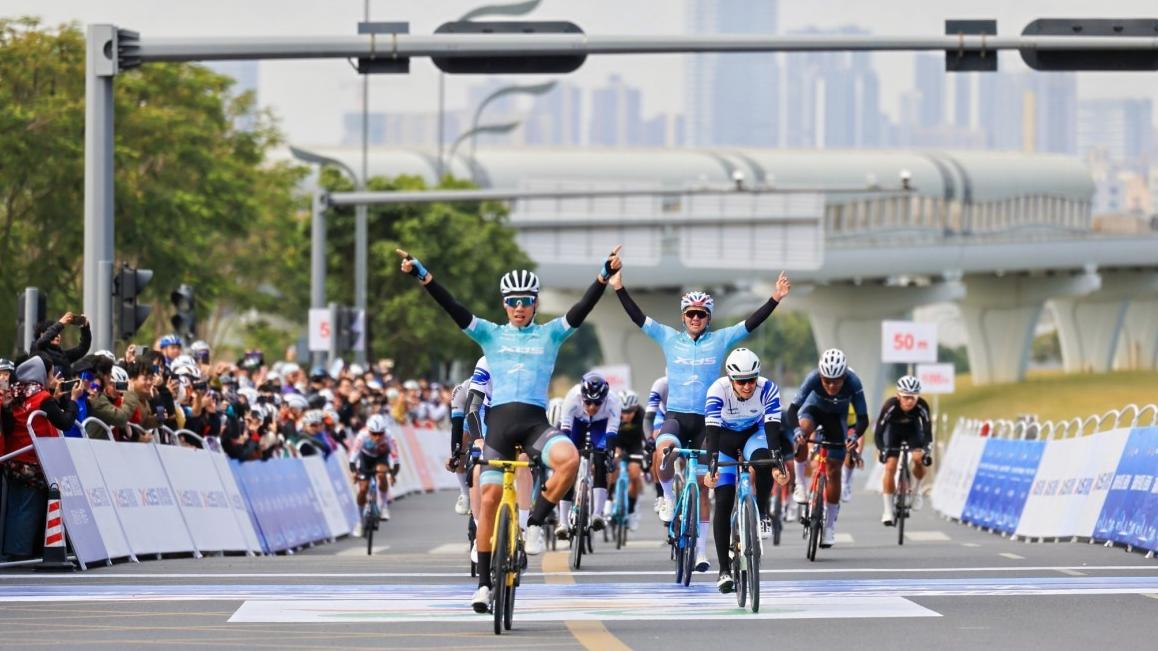Larry Levene: Film is the best way to understand a culture
Madrid, the vibrant capital of Spain, is a city rich in culture and energy. It is a hub for the arts and creative industries, and is also the location where Larry Levene, a film director, producer and screenwriter, chose to share his wide-ranging film projects involving China. Levene said that his journey in the film industry began in China and after working in China for almost 30 years, he believes that film is "the best way to understand a country, a culture and local people."

Larry Levene (Photo/Patrick Shead-Simmonds)
This year marked the global release of Levene's first animated feature, "Dragonkeeper", a story of a girl's destiny. The film follows a young girl, once a slave in a Himalayan fortress where the emperor kept dragons, who takes control of her own fate with the help of a dragon. The production of the film, Levene explained, took six years as it was delayed by the pandemic. With production split between Chinese and Spanish teams, "Dragonkeeper" was a true co-production, requiring constant collaboration and coordination.
Levene emphasized the stark differences between animation and live-action filmmaking, which he had been doing in China for many years. "Animation bridges creativity and industry," he said. "As an industry, you deal with pipelines, software, and hardware. Connecting different systems—whether hardware or software—across countries was incredibly challenging." Despite these difficulties, "Dragonkeeper" was a resounding success, ranking among the top five films in its release week in over 20 countries, including second place in Spain. Following its release, "Dragonkeeper" achieved critical acclaim, recently winning the Best Animation Film Award at the 37th Golden Rooster Awards. "It is the first time that an international co-production won a Golden Rooster!" Levene added.
"Dragonkeeper" was not the first project that Levene had worked on with a half-European and half-Chinese team, as he has almost always worked in such a manner. "It's impossible to approach filmmaking abroad without working closely with local teams. You need their input to avoid misconceptions and to truly capture the essence of the culture," he explained. By combining the expertise of both the Chinese and European sides, Levene believes the results are always stronger.
Levene admitted that one of the greatest hurdles in cross-cultural filmmaking is the language barrier. "The real great wall is the language," he said, adding that even though he enjoys Chinese poetry, he often reads it in English or Spanish. Nevertheless, he was immensely proud of "Dragonkeeper". "The team did meticulous work on character design and the script during preproduction to ensure that even the smallest details were historically accurate to the Han period. In the process, I also learned a lot about Chinese history and culture."
Levene has directed and produced many films in China on various subject matters, such as the Three Gorges Dam, traditional Chinese medicine, social issues and wildlife. The most moving story done by Levene was a documentary on migrant workers inside China. "I followed a family from rural China to Xiamen. They were living in a poor paradise with no expectations of life, so they decided to work in the city as garbage collectors with their two-year-old daughter. After three years they returned to their home and opened a guesthouse."
Levene said, "Since filming in China in 1996, I have experienced all the changes that have occurred in the country, especially in rural areas and small cities. What strikes me most is the disappearance of poverty. I have been travelling worldwide and I have been in big cities in Asia like Jakarta and Manila, but nowhere in China can you find the slums that can be seen in those cities. This is the most amazing thing for me to see a miracle like this in such a big country."
Levene believes film is a powerful medium for cultural understanding, quoting Christopher Nolan: "First there were the Greeks, then Shakespeare, and now there's film." Whether documentaries, action films, or dramas, Levene maintains that film is the best way to truly understand a country, its culture, and its people.
(Web editor: Hongyu, Wu Chengliang)










